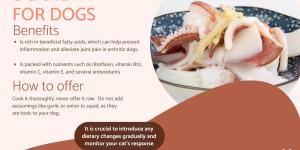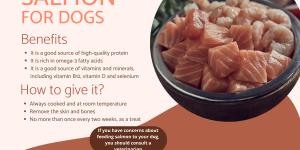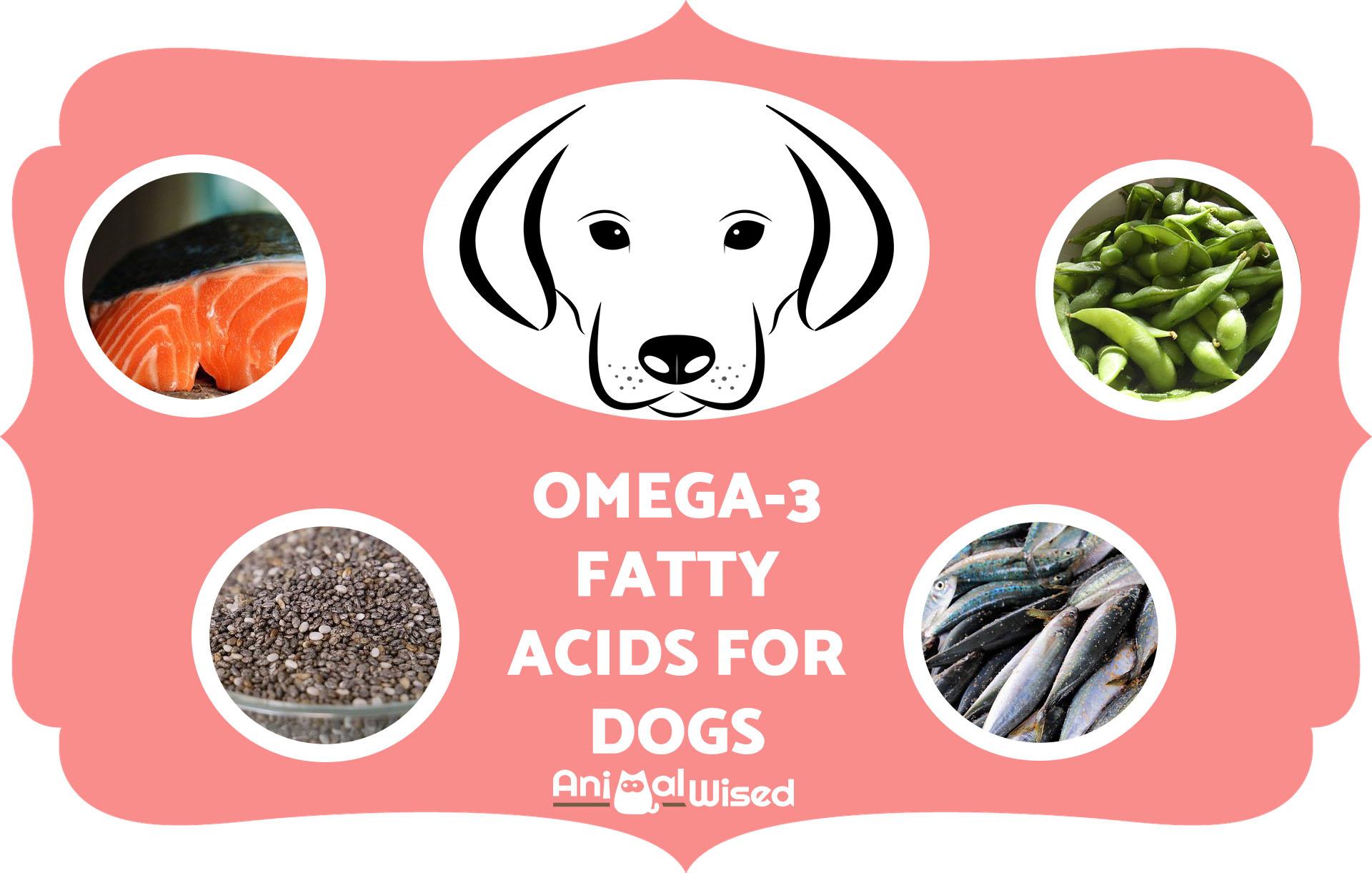Best Omega-3 Rich Food For Dogs



See files for Dogs
We can read endless features on dietary changes for humans, but many of us don't think the same about our pets. Feeding our dogs commercial dog food is easy and it can be sufficient for the majority of dogs. Even though some of them are marketed as being ‘nutritionally complete’, some may be lacking in certain nutrients. While omega-3 fatty acids are great for all dogs, some will need them more than others.
In this AnimalWised article we look at the best omega-3 rich food for dogs. We look at the reasons why dogs need omega-3 fatty acids in their diet and which dogs in particular might benefit from them.
Omega-3 fatty acid benefits for dogs
Omega-3 fatty acids are essential oils which are only available to dogs via their diet. This is to do with how the omega-3 oils are metabolized as nutrients in the body, since they cannot synthesize them on their own. They are referred to as essential fatty acids due to the inability of dogs to manufacture them themselves. Here are the general health benefits omega-3 fatty acids provide for dogs:
- Boost their immune system
- Strengthen joints and reduce chances of arthritis
- Reduce joint pain if they already have arthritis or other joint diseases
- Helps keep the heart healthy
- Helps liver and kidney function
- Improves skin and coat quality
- May help prevent certain cancers
A deficit of omega-3 fatty acids can lead to various health problems in the dog. Some of the most noticeable are those which affect the condition of the dog's skin, hair and nails. Less obvious, but no less serious, problems include joint weakness. Not only are omega-3 fatty acids essential for a dog's well-being, they can also provide specific health benefits to improve their fitness and appearance.
These fatty oils act in a similar way to antioxidants in the body. Although their exact effects are still to be determined, reports show they have a mild anticoagulant effect[1]. This means they can be beneficial in helping to prevent cardiovascular disease. Since they have the potential for positive influences on the dog's cardiovascular system, this makes them especially important for young puppies and senior dogs.
Since the omega-3 fatty acids help to keep a dog's coat and nails healthy, they are beneficial to protect them from the elements. Since a dog's coat and nails are indicators of their general well-being, they should be incorporated into their diet.
There are certain breeds which are believed to have even greater benefit from omega-3 fatty acids. This is because dog breeds such as the Shar Pei, French Bulldog or Pug have folds in their skin which make them prone to diseases such as atopic dermatitis. Essential fatty oils can help keep their skin healthy and avoid such health problems. This is why omega-3 fatty acids should be included in their diet.
Do dogs need omega-3 supplements?
While omega-3 fatty acids are essential for a dog's health and well-being, they may not necessarily need them supplemented in their diet. The reason for this is because the food they eat may already have enough for their nutritional needs. The types of food a dog can eat include:
- Commercial dry dog food
- Commercial wet dog food
- Homemade cooked dog food
- BARF or raw food diet
Of course, it is also possible you may want to give your dog some combination of these different dog food types. A quality dog food, both wet canned food and dry kibble, will have omega-3 fatty acids as part of its formula. However, some less reputable brands may be nutritionally deficient. It will be up to you to check the quality of the food you buy and you can always ask your veterinarian for a recommendation if you are unsure.
With a homemade diet, you will need to ensure their omega-3 fatty acid levels are well-maintained. With a raw food BARF diet, it can be very difficult to give them all the nutrition they need. Raw meat such as chicken and beef does not have high levels of omega-3 fatty acids. For this reason, you will have to include some other omega-3 rich food in their diet or provide them with suitable supplements as recommended by your veterinarian.

Foods rich in omega-3 fatty acids for dogs
While there is some debate, a dog is considered omnivorous with a carnivorous bias. Much of their nutrition comes from animal-protein, but they have also been able to digest other food types thanks to their history of domestication. However, some nutrients such as taurine and vitamin D cannot be synthesized naturally, so they need it in their diet. This is similar to their need for omega-3 rich foods.
Some of the most common omega-3 rich foods are found in the blue fish category. However, there are also vegetables and other foods which can be used in the dog's diet. Foods for dogs high in omega-3 include:
- Salmon: perhaps the most well-known omega-3 rich food, salmon provides many other benefits. Being high in protein, it will also meet many of the dog's other nutritional needs. However, it is not a cheap ingredient and is often prohibitively expensive for many dog owners.
- Sardines: a little cheaper than salmon, sardines are also high in omega-3 fatty acids. They should be eaten fresh as canned sardines often have lots of oil, salt and other ingredients which would be counterproductive to give your dog.
- Anchovies: similar to sardines, these small fish are high in omega-3 and are relatively cheap.
- Linseed: also known as flax, linseed is a non-fish source of omega-3 which can be easily added to your dog's food. Linseed oil is also rich in these fatty acids, so this can be stirred in easily to your dog's food.
- Chia seeds: another great seed which has the benefit of high levels of omega-3. They are often added to commercial dog foods to help boost their nutritional value, but they can also be added to homemade food.
- Soybean: as well as being a legume which is known as having a high protein count, soybeans are also full of omega-3. Edamame is the name for the prepared version of soybeans when cooked, but they too can contain additives which are not beneficial to your dog.
There are other foods for humans which are high in omega-3 fatty acids. They include oysters, walnuts and caviar. However, these are not suitable for practical reasons. Oysters and caviar are prohibitively expensive and walnuts should not be eaten in large amounts as they can cause digestive issues.
However, there are also other ways to supplement omega-3 in your dog's diet. Capsules, oils and tablets can be used, but we need to be careful. Fish oil is a particularly common way of giving it to dogs. Each formulation is different and some may contain other ingredients which are not suitable for canine consumption. For these reasons, before you supplement omega-3 in your dog's diet, we remind you of the importance of consulting a veterinarian.
Can dogs have too much omega-3 fatty acid?
A balanced diet is just that, not too much, not too little. While omega-3 fatty acids are essential for a dog's well-being, we shouldn't go overboard. Some people will add fish oil and other oils to every meal a dog has. An excess of such oil will not be particularly toxic, so the side effects are considered mild.
The problem is that, although many of the omega-3 rich foods have healthy fats, they are still fats. Adding too many to your dog's diet can result in the dog becoming overweight. They can also cause certain gastrointestinal issues which can lead to vomiting, diarrhea and other symptoms.

Omega-6 fatty acids for dogs
While this article is focused on omega-3 fatty acids, omega-6 fatty acids are also very important for your dog's health. Omega-6 fatty acids work in similar ways to omega-3 and have similar health benefits for your dog. They are important for cell structure, growth and repair, meaning they are especially important for developing dogs. However, they need to be of quality and in the right balance to provide benefit to your dog[2].
Foods high in omega-6 fatty acids include:
- Hemp seeds
- peanut butter
- Avocados
- Eggs
- Almonds cashews
However, while these foods are not necessarily toxic to your dog in small amounts, large amounts can be dangerous. Not only can they seriously increase their fat intake, they may also cause gastrointestinal issues. For this reason, commercial food rich in omega-6 fatty acids are usually enough to provide what they need.
If you want to read similar articles to Best Omega-3 Rich Food For Dogs, we recommend you visit our Homemade diets category.
1. Sokoła-Wysoczańska, E., et al. (2018). Polyunsaturated Fatty Acids and Their Potential Therapeutic Role in Cardiovascular System Disorders—A Review. Nutrients, 10(10), 1561.
https://www.ncbi.nlm.nih.gov/pmc/articles/PMC6213446/
2. Biagi, G., Mordenti, A., & Cocchi, M. (2004). The role of dietary omega-3 and omega-6 essential fatty acids in the nutrition of dogs and cats: A review. Progress in Nutrition, 6(2), 0-0.
https://www.researchgate.net/publication/272784328_The_role_of_dietary_omega-3_and_omega-6_essential_fatty_acids_in_the_nutrition_of_dogs_and_cats_A_review







